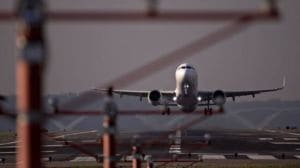Phuket tries to get back on its feet quickly
As the work to find bodies continues on the beaches and beneath the wreckage along Thailand’s picturesque Andaman Sea coast, a differen...

As the work to find bodies continues on the beaches and beneath the wreckage along Thailand’s picturesque Andaman Sea coast, a different type of work has begun. Shops are being swept, signs repainted, utility poles repaired and debris collected in black plastic sacks. Ten days after a tsunami pounded the Western beaches of this resort island, nearly 5,200 Thais and foreign tourists have been reported dead and about 2,200 are missing. But residents say they have little choice but to look ahead with stoicism, even optimism.
In an area that depends almost entirely on tourism for its livelihood, reopening for tourists is the only way they can survive. ‘‘Definitely they’ll come back,’’ said Jitlada Thanthammangkol, 29, the events sales manager for the Impiana Phuket Cabana on Patong Beach. ‘‘Even our guests said, ‘Don’t worry, we’ll come back.’ This thing doesn’t happen often — it’s just bad luck. I think they know it will be OK.’’
The hotel’s 76 rooms were destroyed. The only structure left standing was the open-air lobby, which suffered extensive water damage. Two guests were found dead — an Indian woman and another woman, apparently a Westerner. The body was found a few days after the tsunami in a storage room and was so badly decomposed that it could not be identified.
Still, Jitlada is considering a November opening date for a new hotel. On Tuesday, staff members were busy collecting debris and sweeping the site. Jitlada had to shout to be heard over the sound of cranes dumping debris into trucks and of heavy equipment knocking down the remains of walls at damaged sites nearby. The noise of construction was all around Patong Beach — hammers thumping, cranes whining and roaring, pile drivers boring into cement pavement, high-powered water hoses hissing as they washed the streets.
Most Phuket business owners interviewed said they did not think that insurance would cover their losses and owners of many smaller shops said they had no insurance coverage at all. The Thai government has promised financial aid to help quickly rebuild Phuket and the other coastal communities.
Prime Minister Thaksin Shinawatra, who is hoping to be re-elected next month, said recently, ‘‘We are doing everything we can to recover in two months.’’ But rebuilding will be costly.
The Phuket office of the Tourism Authority of Thailand estimated that 200 hotels and resorts could not reopen until they have been repaired and more than 3,000 hotel rooms have been lost. Tourism Authority officials said they expected about 10 per cent of the estimated 12 million tourists who come to Thailand annually to cancel their trips, meaning a considerable loss in total tourist revenue, estimated at $7 billion each year.
On Tuesday, the local Patong government devoted $500,000 to cleanup operations. Officials point out that most of Phuket island was not touched by the tsunami and the eastern side was largely untouched.
At hard-hit Patong Beach many bars, restaurants, marketplaces and tourist shops are open. Among the few on Phuket who do not rely on tourism for their income are the small fishermen, and they, too, have seen their livelihoods destroyed by the tsunami. —LAT-WP
Photos


- 01
- 02
- 03
- 04
- 05





























